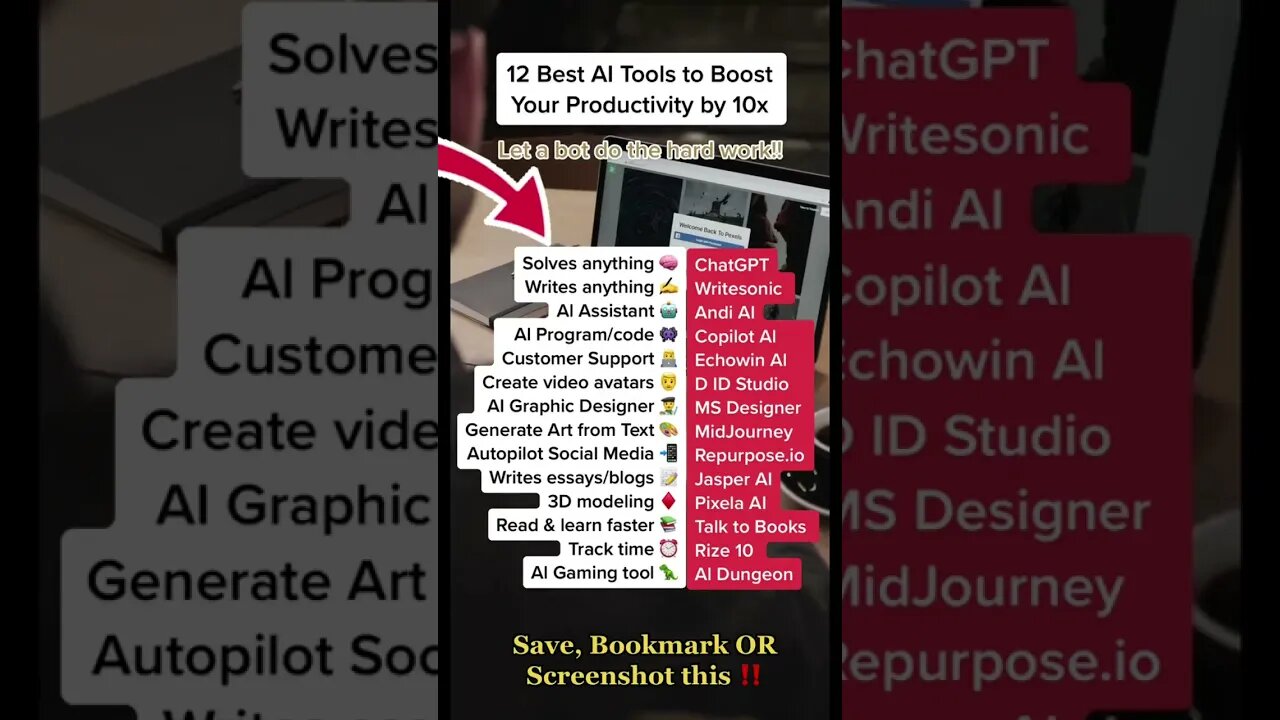Premium Only Content

A Comprehensive Guide to AI Tools"#viral #AItools | #ArtificialIntelligence | #MachineLearning
Artificial Intelligence (AI) refers to the development of computer systems that can perform tasks that typically require human intelligence, such as visual perception, speech recognition, decision-making, and language translation. AI technologies can be classified into various categories, including machine learning, natural language processing, computer vision, robotics, and expert systems.
Machine learning is a subset of AI that involves training algorithms to make predictions or decisions based on data inputs. Natural language processing (NLP) enables computers to understand and respond to human language. Computer vision involves the development of algorithms that can interpret visual information from images and videos. Robotics combines AI with mechanical engineering to create intelligent machines that can perform physical tasks. Expert systems use AI to replicate the decision-making ability of human experts in a particular domain.
AI technologies have the potential to revolutionize many industries, including healthcare, finance, transportation, and manufacturing. They can help automate mundane tasks, improve accuracy and speed of decision-making, and even generate insights and solutions that were previously impossible for humans to achieve. However, there are also concerns around the ethical implications of AI, particularly around issues of bias, privacy, and job displacement.
#AItools
#ArtificialIntelligence
#MachineLearning
#DataScience
#DeepLearning
#NLP (Natural Language Processing)
#ComputerVision
#AIautomation
#IntelligentAutomation
#BigData
#SmartAnalytics
#DigitalTransformation
#Robotics
#PredictiveAnalytics
#AugmentedIntelligence
-

World Nomac
16 hours agoThe side of Las Vegas they don't want you to know about
335 -
 LIVE
LIVE
Film Threat
5 hours agoVERSUS: WICKED VS GLADIATOR II | Film Threat Versus
161 watching -
 2:06:30
2:06:30
Barstool Yak
6 hours agoThe Yak with Big Cat & Co. Presented by Rhoback | The Yak 11-25-24
6.36K3 -
 1:43:44
1:43:44
The Quartering
4 hours agoDr Disrespect Leaves Youtube For Rumble! With Rumble CEO Chris Pavlovski
84.5K36 -
 LIVE
LIVE
Grant Stinchfield
2 hours agoMy Trip To The Emergency Room Exposed the Our Joke of a Health Care System
343 watching -
 LIVE
LIVE
RyanMatta
1 day ago $1.01 earnedOPERATION AMBER ALERT | CHILD TRAFFICKING DOCUMENTARY | EXECUTIVE PRODUCER RYAN MATTA
418 watching -
 14:14
14:14
TimcastIRL
1 day agoJoe Rogan ROASTS The View For Saying He BELIEVES IN DRAGONS In HILARIOUS MOCKERY
42.4K76 -
 2:17:04
2:17:04
Side Scrollers Podcast
5 hours agoDoc Disrespect ON RUMBLE, PlayStation To Rival Nintendo | Side Scrollers
33.6K5 -
 12:04
12:04
Silver Dragons
2 hours agoGAME CHANGING NEWS FOR SILVER
6.06K1 -
 49:43
49:43
Ben Shapiro
3 hours agoEp. 2092 - Trump Makes His FINAL PICKS
56K37